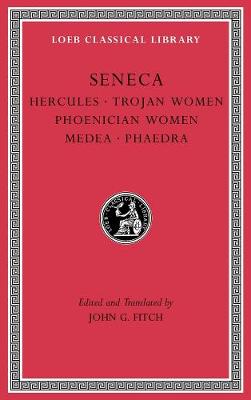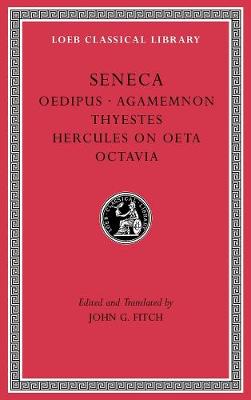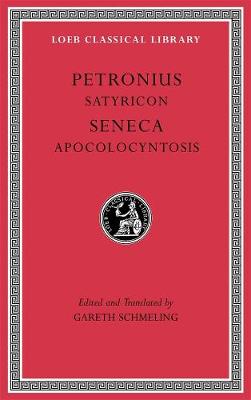Loeb Classical Library
3 total works
Spectacular verse drama.
Seneca is a figure of first importance in both Roman politics and literature: a leading adviser to Nero who attempted to restrain the emperor’s megalomania; a prolific moral philosopher; and the author of verse tragedies that strongly influenced Shakespeare and other Renaissance dramatists.
Seneca’s plays depict intense passions and interactions in rhetoric that is equally strong. Their perspective is much bleaker than that adopted in his prose writings. His plots are based on mythical episodes, in keeping with classical tradition. But the political realities of imperial Rome are also reflected in an obsessive concern with power and dominion over others. The Octavia is our sole surviving example of a Roman historical play; set at Nero’s court, it was probably written by an admirer of Seneca as statesman and dramatist.
John G. Fitch has thoroughly revised his two-volume edition of Seneca’s Tragedies to take account of the textual and interpretive scholarship that has appeared since its initial publication. His translation conveys the force of Seneca’s dramatic language and the lyric quality of his choral odes.
Spectacular verse drama.
Seneca is a figure of first importance in both Roman politics and literature: a leading adviser to Nero who attempted to restrain the emperor’s megalomania; a prolific moral philosopher; and the author of verse tragedies that strongly influenced Shakespeare and other Renaissance dramatists.
Seneca’s plays depict intense passions and interactions in rhetoric that is equally strong. Their perspective is much bleaker than that adopted in his prose writings. His plots are based on mythical episodes, in keeping with classical tradition. But the political realities of imperial Rome are also reflected in an obsessive concern with power and dominion over others. The Octavia is our sole surviving example of a Roman historical play; set at Nero’s court, it was probably written by an admirer of Seneca as statesman and dramatist.
John G. Fitch has thoroughly revised his two-volume edition of Seneca’s Tragedies to take account of the textual and interpretive scholarship that has appeared since its initial publication. His translation conveys the force of Seneca’s dramatic language and the lyric quality of his choral odes.
The Satyrica (Satyricon liber), a comic-picaresque fiction in prose and verse traditionally attributed to the Neronian Petronius (d. AD 66) but possibly of Flavian or Trajanic date, survives only as fragments of a much larger whole. It takes the form of a first-person narrative by the endearing ne'er-do-well Encolpius, a brilliant storyteller, parodist, and mimic who recalls episodes from his past life as a wandering bohemian, living by his wits on the margins of society in Greek southern Italy and encountering a vividly realized array of characters from the early imperial demimonde, including the wealthy freedman Trimalchio, one of the most unforgettable characters in all of Latin literature.
Paired with the Satyrica, and likewise in prose and verse, is the Apocolocyntosis (Pumpkinification), a short satirical pamphlet lampooning the death, apotheosis, and attempt to enter heaven of the emperor Claudius (reigned 41-54). If the work of Lucius Annaeus Seneca (4 BC-AD 65), better known for his austere Stoic moralism, its sarcastic wit and rollicking humor were no doubt inspired by bitterness over his exile at Claudius' hands in 41-49.
For this Loeb edition the Latin texts have been freshly edited and translated, with ample introductions and explanatory notes.


